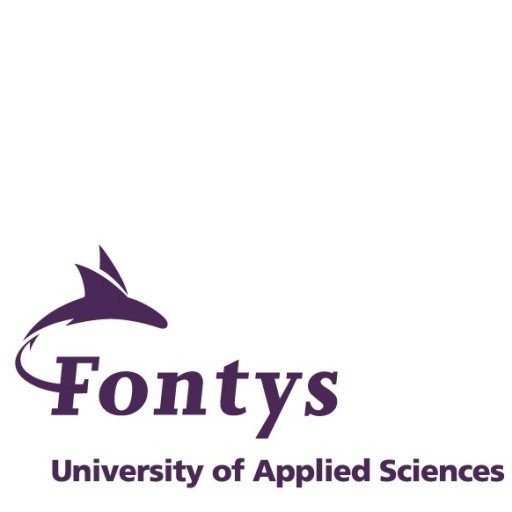Photos of university / #uva_amsterdam
System and Network Engineering: Networking at the University of Amsterdam is a comprehensive and academically rigorous master's program designed to prepare students for advanced careers in the field of computer networking and system infrastructure. This program focuses on the theoretical foundations and practical applications of designing, implementing, and managing complex networked systems. Students will gain in-depth knowledge of network protocols, security, cloud computing, and the latest developments in network technology, equipping them with the skills necessary to address the technological challenges of modern digital society. The curriculum combines coursework, research projects, and hands-on lab exercises, ensuring students develop both technical expertise and problem-solving abilities. The program emphasizes critical analysis of current trends such as Internet of Things (IoT), 5G, and software-defined networking (SDN), fostering innovation and versatility in the students’ professional profiles. Faculty members are leading researchers and industry experts, providing students with insight into cutting-edge developments and industry needs. The master's program also offers opportunities for international exchange, internships, and collaborative projects with companies and research institutes. Graduates will be well prepared for diverse roles including network architect, security specialist, system administrator, or consultant in telecommunications, IT firms, or governmental organizations. The University of Amsterdam's strong links with industry partners and its focus on societal relevance ensure that students graduate with relevant skills and a competitive edge in the global job market. This program is ideal for students with a background in computer science, information technology, or engineering who aspire to deepen their expertise in system and network engineering within a vibrant academic community committed to innovation and societal impact.
The Bachelor's program in System and Network Engineering: Networking at the University of Amsterdam offers an in-depth exploration of the fundamental principles and advanced topics in computer networking and systems engineering. Throughout this program, students will develop a comprehensive understanding of how large-scale networks function, including the design, implementation, and management of secure and efficient network infrastructures. The curriculum combines theoretical knowledge with practical skills, ensuring graduates are well-equipped to meet the demands of the rapidly evolving field of information and communication technology.
Students will examine core concepts such as network protocols, data transmission, network architecture, and cybersecurity measures. The program emphasizes hands-on experience through labs, projects, and internships, allowing students to apply their knowledge to real-world scenarios. In addition, courses on cloud computing, network virtualization, and Internet of Things (IoT) prepare students to work with emerging technologies and trends shaping the digital landscape.
The program also highlights the importance of designing sustainable and scalable network solutions, alongside understanding the ethical and social implications of technology use. Collaborations with industry partners and participation in cutting-edge research initiatives are integral components of the curriculum, providing students with valuable insights into current challenges and innovations in network engineering.
Graduates of this program will be prepared for careers in network and systems administration, cybersecurity, IT consultancy, or further postgraduate studies. They will possess a strong foundation in both theoretical and practical aspects of networking, enabling them to contribute to the development and maintenance of reliable, secure, and high-performance network environments for organizations across various sectors. With a focus on critical thinking, problem-solving, and teamwork, the program aims to produce versatile professionals capable of leading and innovating in the field of system and network engineering worldwide.
Program requirements for the MSc in System and Network Engineering: Networking at the University of Amsterdam generally include a completed Bachelor's degree in Computer Science, Electrical Engineering, Information Technology, or a related field from a recognized university. Applicants are expected to demonstrate a solid foundation in networking concepts, computer systems, and programming skills. A good command of the English language is required, typically evidenced by a TOEFL or IELTS score unless the prior education was completed in English. The program may also require GRE scores, although this is not always mandatory.
Applicants should submit a motivation letter explaining their interest in the field and their career goals. Transcripts of academic records, curriculum vitae, and letters of recommendation are also typically required to assess the applicant's academic background and suitability for the program. Some programs may have specific prerequisite courses or knowledge in areas such as network protocols, algorithms, data structures, and cybersecurity. It is advisable to have relevant project or work experience in networking or related fields to strengthen the application.
The admission process may include an interview or online assessment to evaluate the candidate's motivation, technical knowledge, and communication skills. The program emphasizes both theoretical understanding and practical application, so applicants with hands-on experience or internships in network engineering might be preferred. The competition against other candidates is generally high, and meeting the minimum requirements does not guarantee admission.
Additionally, international students may need to provide proof of their visa status and sufficient financial means for residing in the Netherlands. Upon acceptance, students will need to comply with the university’s regulations, including registration deadlines, health insurance requirements, and orientation sessions. The curriculum is designed to prepare students for careers in network design, management, and security, requiring dedication, analytical skills, and a proactive approach to stay current with technological developments.
Financial aspects of the System and Network Engineering: Networking program at the University of Amsterdam include several key components that support students throughout their studies. The university offers a range of funding opportunities, including government grants, scholarships, and tuition fee waivers, tailored to both Dutch and international students. International students may be eligible for specific scholarships such as the Amsterdam Excellence Scholarship or other merit-based awards that recognize academic achievement and potential. Dutch students can often access student loans and grants provided by the Dutch government, which assist in covering tuition fees and living expenses. The tuition fees for non-EU/EEA students are higher than for EU/EEA students, and prospective students should consider these costs when planning their finances.
The university also provides information about part-time work opportunities on or near campus, which can help students supplement their income during their studies. The cost of living in Amsterdam is an important consideration, as accommodation, transportation, meals, and personal expenses can vary significantly. Students are encouraged to develop a comprehensive budget plan before starting their studies to ensure they can comfortably cover their costs throughout the program duration.
Financial aid packages are sometimes awarded based on academic merit, financial need, or a combination of both, and students are advised to check the university's official website for the latest application procedures and deadlines. Additional funding sources, such as external scholarships from organizations, foundations, and industry partners, may also be available for students who meet specific criteria. University of Amsterdam offers orientation sessions on financing studies, including tips on applying for scholarships and grants, managing student loans, and financial planning.
Overall, studying System and Network Engineering: Networking at the University of Amsterdam can be financially demanding, but several resources and funding mechanisms are designed to support students throughout their academic journey, easing financial burdens and enabling focus on their education and career development.
The Master's programme in System and Network Engineering: Networking at the University of Amsterdam is designed to provide students with comprehensive knowledge and practical skills in the field of networking and system management. The programme focuses on the development, operation, and security of complex networked systems, preparing graduates to address the challenges of modern digital communication infrastructures. Students acquire a deep understanding of network architecture, protocols, and the design of scalable, reliable, and secure networks. The curriculum includes courses on network security, wireless networks, cloud computing, and network management, combining theoretical foundations with hands-on practical experience through labs and projects.
The programme emphasizes the application of cutting-edge technologies in real-world scenarios, encouraging innovation and problem-solving skills. Students have opportunities to specialize in areas such as network security, network management, or data communication, tailoring their education to their career interests. The faculty members are renowned experts in the field, providing students with mentorship and insights into ongoing research developments. Throughout the programme, students engage in teamwork, develop critical thinking, and gain experience with current tools and software used by industry professionals.
The University of Amsterdam emphasizes international orientation and collaboration, often involving projects with companies and research institutions. Graduates are well-equipped to pursue careers as network engineers, system administrators, security specialists, or consultants in both the private and public sectors. The programme’s strong foundation combined with practical training ensures that students are prepared to contribute effectively to the evolving digital landscape, managing and securing network infrastructures amidst emerging technological challenges.










